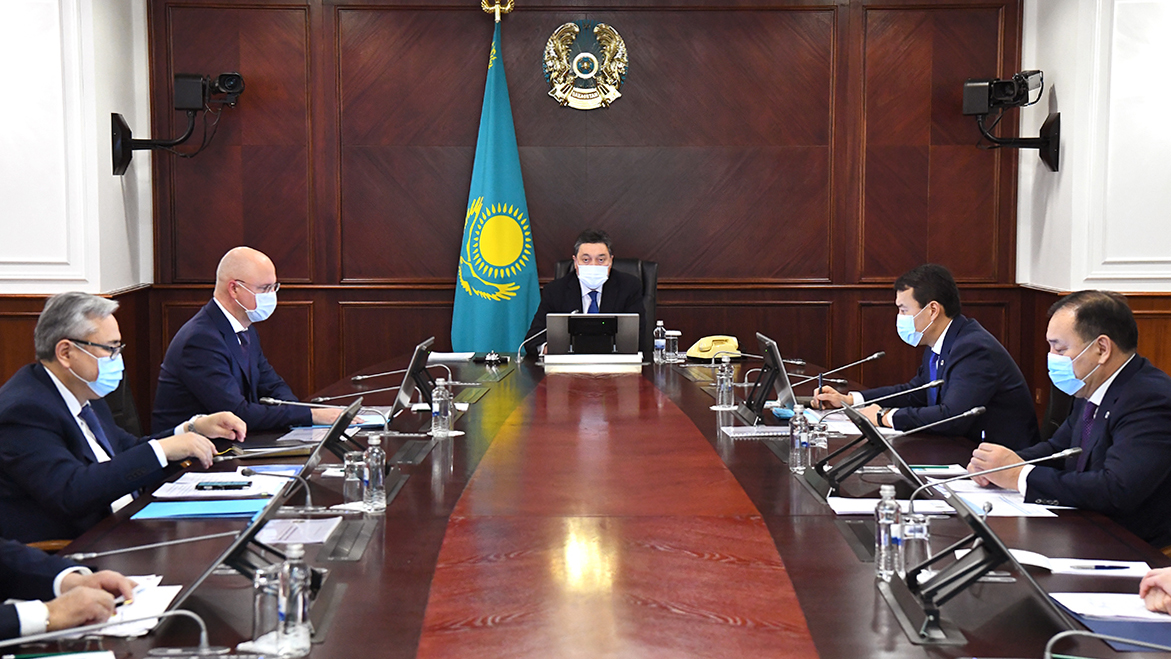NUR-SULTAN – Kazakh Prime Minister Askar Mamin chaired the meeting on the prevention of the spread of coronavirus that tightened existing COVID-19 restrictions ahead of the New Year holiday season. Starting Dec. 25 and through Jan. 5, the government decided to ban all entertainment, sport, and public events, including the much-expected New Year celebrations and corporate parties.

During the meeting. Photo credit: prime minister.kz
The decision also envisions more stringent control at the Tengiz field in the Atyrau Region, after contractor workers were reported using fake PCR documents to cross sanitary checkpoints.
Prices for COVID medications will be lowered by 24 percent on average, according to the decision.
As proposed by the Kazakh Ministry of Education and Science, starting next semester, high school students (9th, 11th, 12th grades) will follow a mixed learning program, where 70 percent of classes will take place in classrooms and 30 percent remotely. School students will also have access to individual consultations with five-person groups to compensate for what they have missed during the last semester online.
From the second semester onwards, first-year university students will also partially return to classrooms.
Mamin said the epidemiological situation is under control. Twenty-eight percent of hospital beds are currently occupied.
The officials expect coronavirus cases to rise in January and February next year amid the typical cold and flu season.
Currently, Kazakhstan is in a green zone, according to the Kazakh Healthcare Ministry. Only the Atyrau Region is in the high-risk red zone, while North Kazakhstan, Pavlodar, Kostanay, and Akmola regions are in the yellow zone. The East Kazakhstan Region and the cities of Nur-Sultan and Almaty were moved back into the green zone.
As of Dec. 21, Kazakhstan has had 147,236 coronavirus cases and 2,147 deaths as well as 44,414 coronavirus pneumonia cases and 475 deaths.
